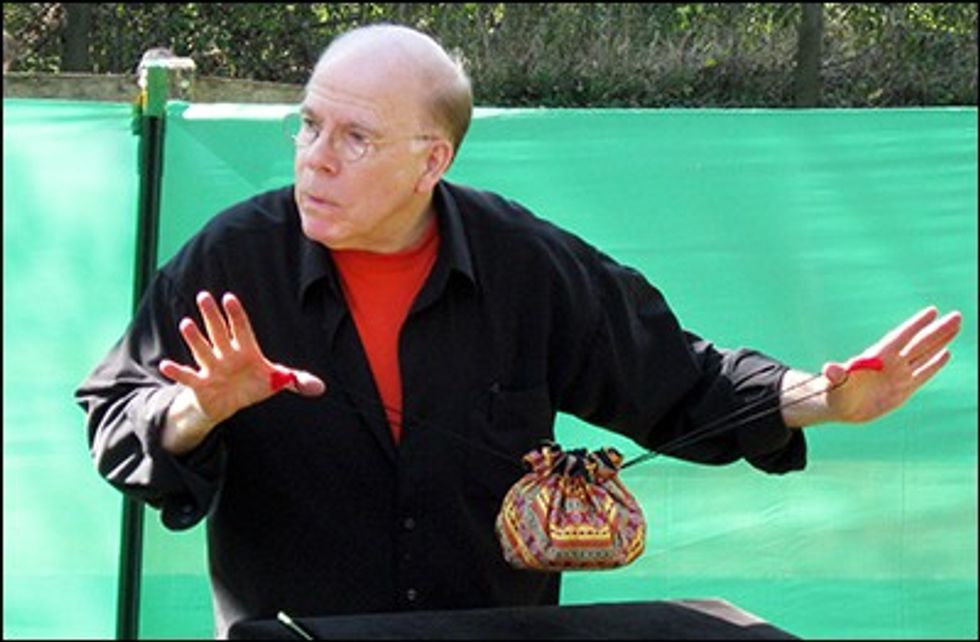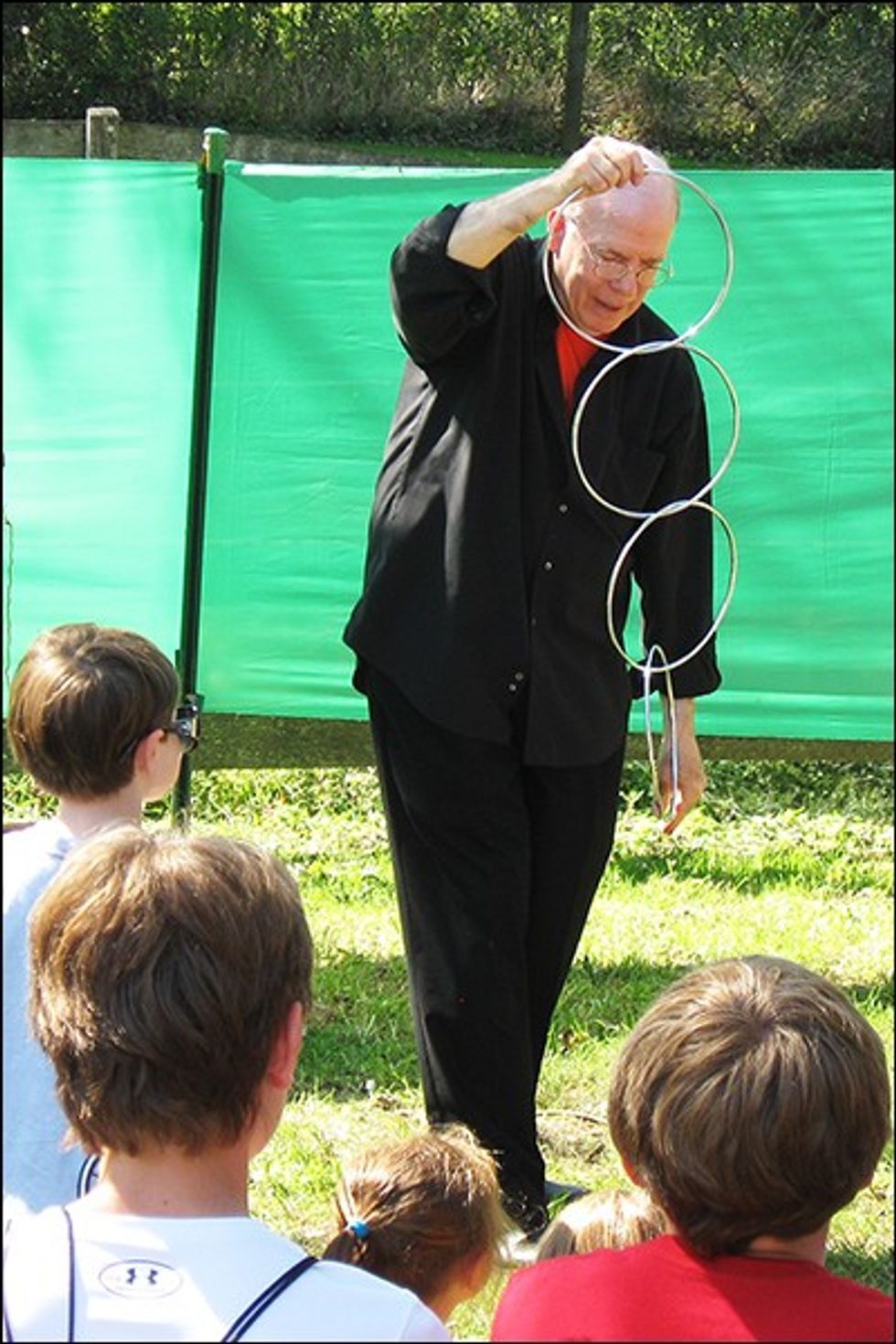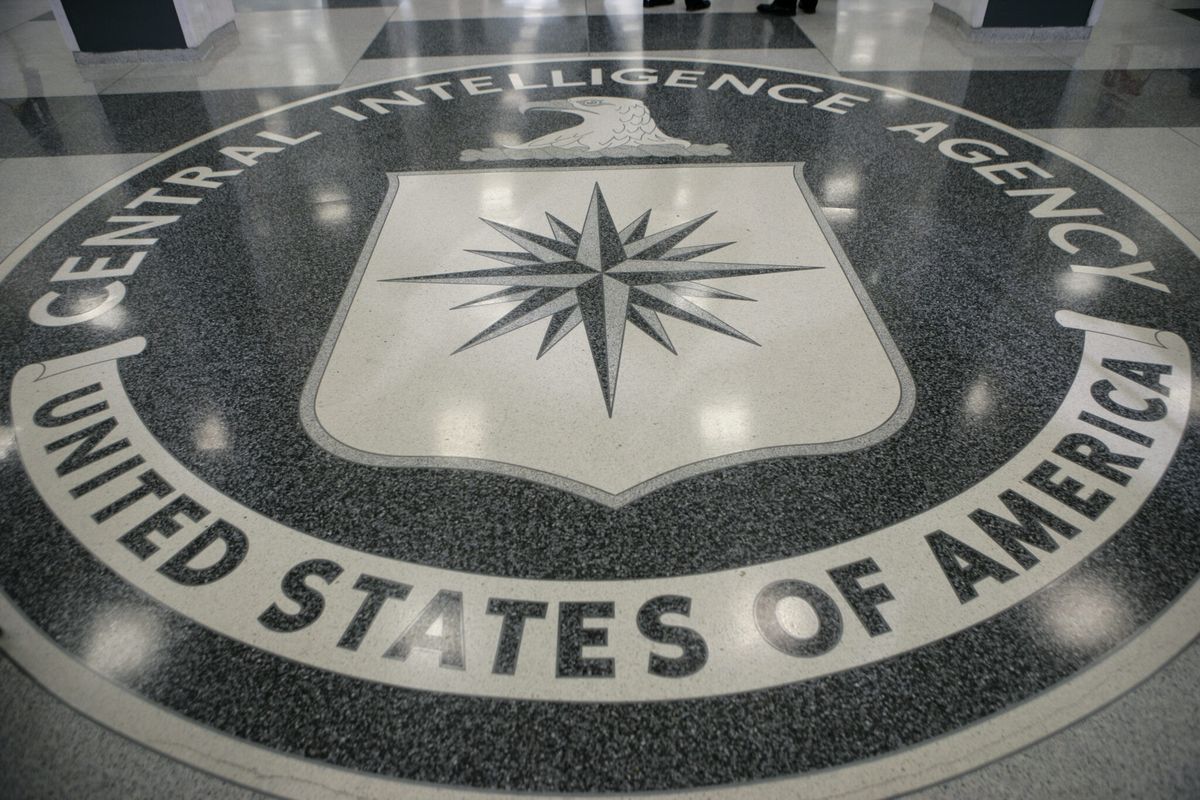In “Under Cover” we bring readers reviews of current books on national security matters, news about new releases, and Q’s & A’s with authors, publishers, and agents (the literary kind.)
This week, we have something special up our sleeve.
John McLaughlin is one of the most admired and respected alumni of the intelligence community. A 32-year veteran of the CIA, McLaughlin was Deputy Director and Acting Director of Central Intelligence and is now a senior fellow and Distinguished practitioner in residence at the Johns Hopkins School of Advanced International Studies (SAIS) in Washington. He is also an on-air contributor for NBC News and MSNBC.
Slightly less-well-known than his chops as an intelligence professional, is skill as a magician. Over the years, McLaughlin dazzled his colleagues with sleight of hand – to the point that his security detail’s code name for him was “Merlin.”
McLaughlin recently co-authored a book called Creating Business Magic: How the Power of Magic Can Inspire, Innovate and Revolutionize Your Business.
The book takes what the authors have learned about magic and packs it into a unique framework and relates it to key lessons applicable to business enterprises. The authors’ adapt nine strategies of the world’s greatest magicians and aim to inspire boundless imagination, bolster innovation, energize leadership, and spark success in any business.
“Creating Business Magic” was recently included in Inc.com’s list of “22 Books Highly Recommended by Successful People.”
Under/Cover recently caught up with McLaughlin and asked about the convergence of intelligence, magic and business.
Under/Cover: What got your started in magic?
McLaughlin: I was 11 years old sitting in the old Memorial Theater near Pittsburgh, watching a 1950's movie that was a biography of Harry Houdini. Tony Curtis played the lead, Janet Leigh played his wife. It was shown in beautiful technicolor, had high production values and is still a pretty good film. To my 11-year old mind, it was just spectacular – the story of a heroic, risk-taking escape artist who performed all over the world to great acclaim. I ran to the local library the next day, got a copy of Houdini's biography and a book that taught magic tricks and never looked back.
Under/Cover: You grew up to eventually become Acting Director of the CIA. How did you use magic during your time at the CIA?
McLaughlin: Magic was an ice breaker and a teaching tool. An icebreaker with foreign intelligence services in particular. Meetings with them can be rather formal, sometimes stilted, affairs. A few magic tricks could bring everyone to a human level, draw smiles, and open up a dialogue, it's a universal language. As a teaching tool with agency officers, it was a way to caution them against the threat of deception. it was instructive to point out that if I could fool them after telling them I would, it would be a lot easier for an adversary who gave them no such warning.
Under/Cover: Your new book promises lessons applicable to the business community. Can you give us an example?
McLaughlin: There are many lessons applicable to business. Here are just a few: Magicians have to understand the perceptions of their audience — where is the audience starting? Similarly, an entrepreneur has to assess a potential market in a similar way. Also, magicians don't begin with a method or technology, they begin with imagination — what's the dream they want to realize? That’s not all that different from the way Steve Jobs created the Mac and the iPhone — first the dream, then the method. Magicians strive always to be one step ahead of their audience (we even call this the "one ahead" principle); so must a negotiator or business developer. Magicians have a whole series of what we call "outs" — exit ramp strategies we use to bring things to what the audience sees as a successful conclusion even though something may have gone badly wrong, something that can easily happen on magic's high wire; a good lesson for life in general — always have a Plan B. Our message is that thinking like a magician will make you more successful in almost any endeavor.
Under/Cover: Did your experiences in the intelligence community contribute to this book as well?
McLaughlin: Many of the lessons we discuss in the book come from the intelligence world. Imagination like that driving the magician's creative process, was behind the creation of photography from space in the late 1950s and 1960s, something that back then, had never been attempted and posed many obstacles for the crude technology of the times. The creation of a venture capital firm by the CIA in 1999 called In-Q-Tel, allowed the Agency to jump ahead of the technology boom, and it’s an example of the magician's practice of always thinking "one ahead" of his audience. And just as every magic trick needs an "out" in case something goes wrong, every covert action plan needs a Plan B.
Under/Cover: You have two co-authors for "Creating Business Magic." How did that come about?
McLaughlin: The three of us shared a common love for magic, but have very different backgrounds. David Morey is one of the leading strategic consultants in the business world with many Fortune 500 clients. Eugene Burger was a full-time magician who has been described as "one of the 100 most influential magicians of the 20th century," and I, of course, spent the bulk of my life in the world of intelligence and now academia. We each draw on our backgrounds for the examples in the book. I look at our collaboration as something akin to the most productive alliances within the CIA in places like the Counter Terrorism Center, at which people with diverse skill sets, from operations officers, analysts, scientists and support officers work side-by-side toward a common goal. The combination of their abilities and perspectives bring about greater success.
Sadly, Eugene Burger passed away just as the book was finished. David and I dedicated the book to Eugene, for whom we had enormous affection as our mentor and teacher in magic.
Under/Cover: Got any magic stories you can share?
McLaughlin: Sure. You never know where a magic trick can lead. I was once in a meeting with the former President of Argentina, Carlos Menem. Someone asked me to show him a magic trick. I knew that Argentina was having some tough times economically, so I borrowed a dollar bill from him and turned it into a Benjamin, a $100 bill. A week later, a cable arrived from our embassy in Buenos Aires saying that Menem wanted to offer me a Finance Ministry position. It was in jest of course, but it does show again, the power of magic to make a point and leave an impression.

















